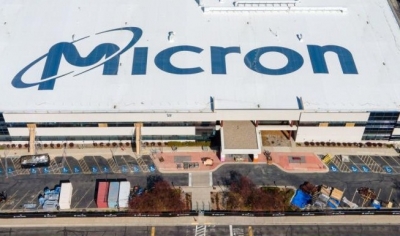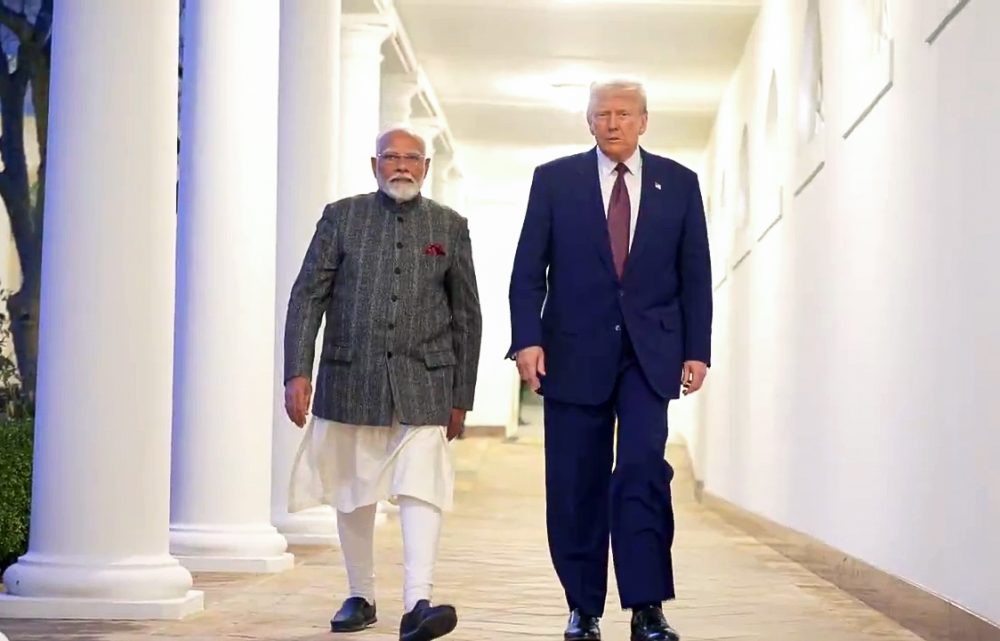According to Lin, after the Micron ban, South Korea will play its role as it may replace the company’s market share with its Samsung and Hynix….reports Asian Lite News
Beijing’s latest decision to stop purchasing Micron Technology products will hurt China itself, Lin Tsung-Nan, a professor at the Department of Electrical Engineering at National Taiwan University in Taipei said, according to Voice of America (VOA).
In an interview with VOA Mandarin, Lin said that after the G7 released its joint statement on China, its President Xi Jinping retaliated by blocking Micron.
“This is a bit like the ‘Seven Wounded Fist’ in martial arts novels, which will hurt Micron and of course itself [China],” Lin said, adding “However, China should have calculated, that is, when it hurt itself, it’s not fatal.”
According to the Wuxia Fandom Wiki the skill Lin refers to “allows the user to inflict severe internal injuries on his opponent while suffering grave internal injuries at the same time.”
He said that even if the ban on Micron hurts the domestic market, the Chinese Communist Party would not hesitate to do this to defend its authority, according to VOA.
According to Lin, after the Micron ban, South Korea will play its role as it may replace the company’s market share with its Samsung and Hynix.
This is especially true for Samsung, which has made extensive DRAM production investments in China. Samsung’s recent poor sales in China will motivate it to grab the share, Lin said.
Even if Seoul is constrained by Washington’s request for South Korean factories not to export supplies to China, the Chinese Communist Party may exert pressure on Samsung’s Chinese factories for “secret deals,” according to Lin, who added,
“This is Xi’s plan to kill two birds with one stone: to show China’s assertiveness, and to rope in South Korea, or to divide South Korea and the U.S. on their China stance.”
Earlier, on Sunday, China’s Cyberspace Administration of China, or CAC, issued a statement requesting that “operators of critical information infrastructures in China should stop purchasing products made by Micron Technology” due to “national security risks.”
The news of China’s decision to block Micron after nearly two months of investigation came as a shock to the foreign business community in China, reported VOA.
Notably, this came just after the G7 released its statement on China.
The US Department of Commerce dismissed the ban issued Sunday as “unsubstantiated,” while Micron, the biggest memory chipmaker in America, said in a written statement, “We have received CAC’s notice. … We are evaluating the conclusion and assessing our next steps. We look forward to continuing to engage in discussions with Chinese authorities.”
After this move, Michael Hart, president of the Beijing-based American Chamber of Commerce in China (AmCham China), said in a written response to VOA Mandarin on Monday that US businesses are worried about being the next target of China’s security review.
Hart said in his emailed reply, “Our members are asking us two things: will they be targeted because they are American, and how can they ensure they remain compliant in a business environment that appears to be increasingly influenced by national security concerns?”
In an ironic twist, Micron was once the alleged victim of Chinese theft of trade secrets, reported VOA.
In 2018, a federal grand jury in San Francisco charged a Chinese state firm, a Taiwanese chipmaker, and three employees with economic espionage related to a conspiracy to steal Micron’s trade secrets.
United Microelectronics Corporation pleaded guilty in 2020 to one count of receiving and possessing a trade secret. It agreed to pay a fine of USD 60 million and cooperate with U.S. prosecutors. In a statement, UMC denied any knowledge of the theft of Micron’s trade secrets or their unauthorized transfer to Jinhua. (ANI)














